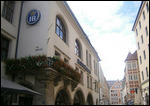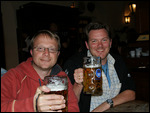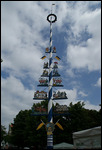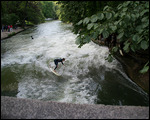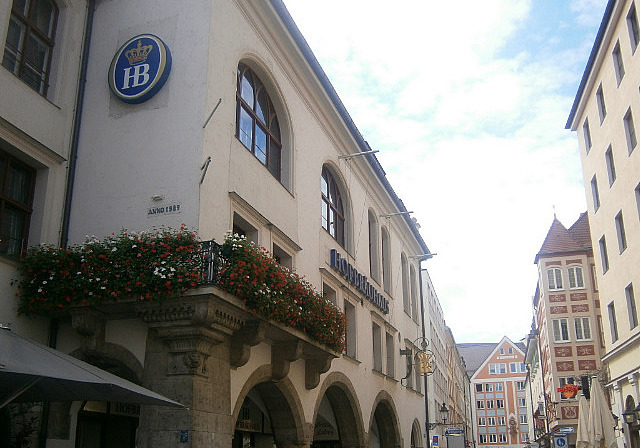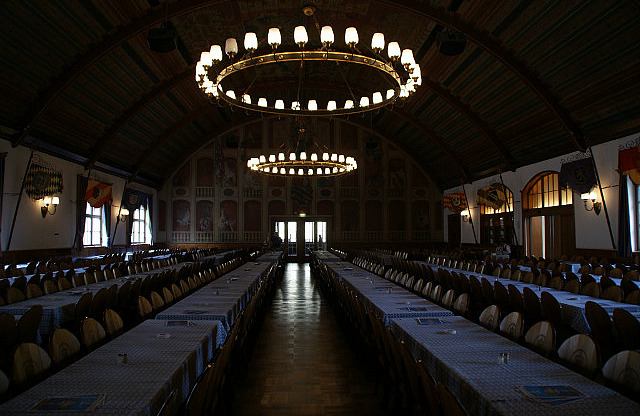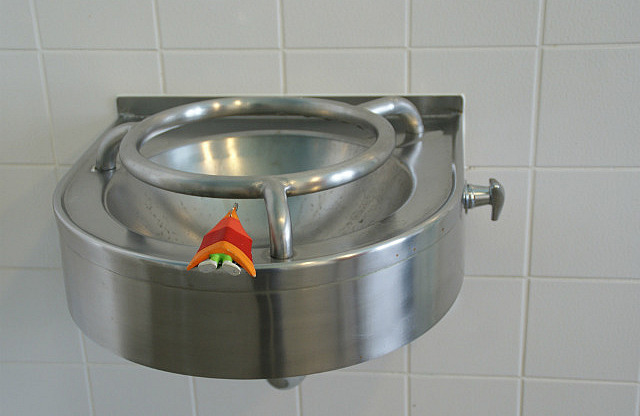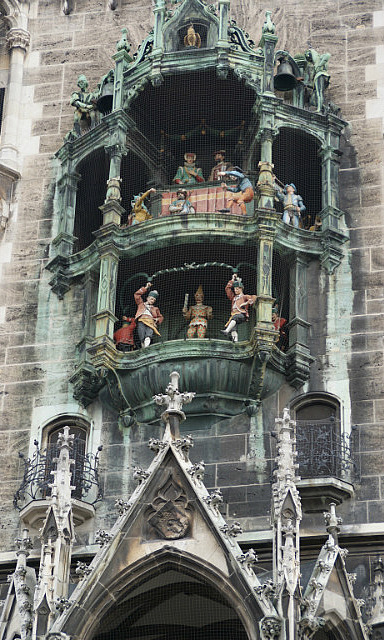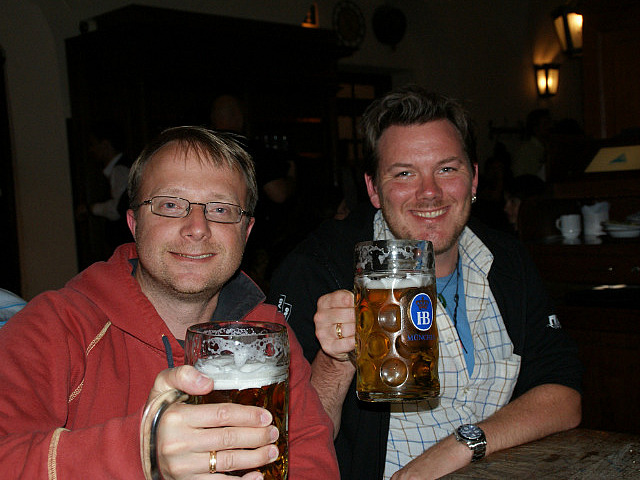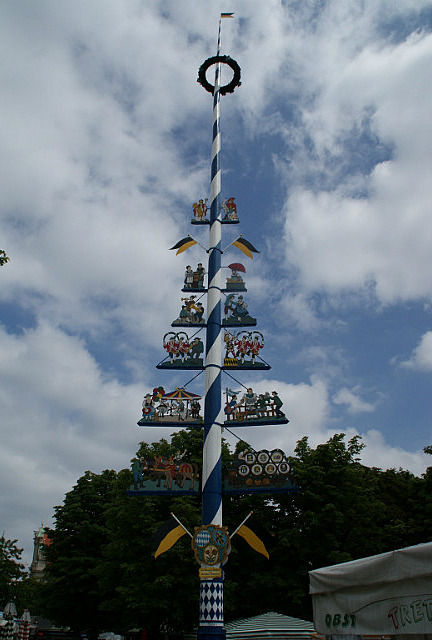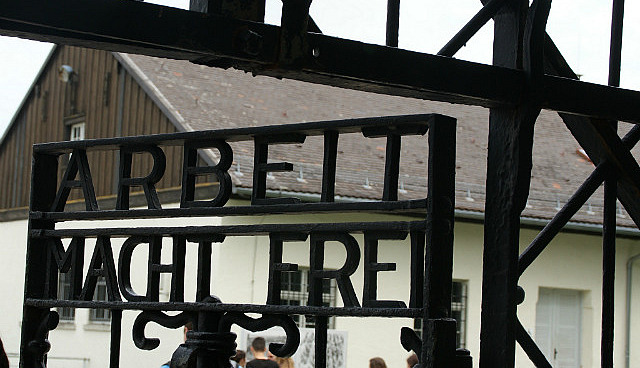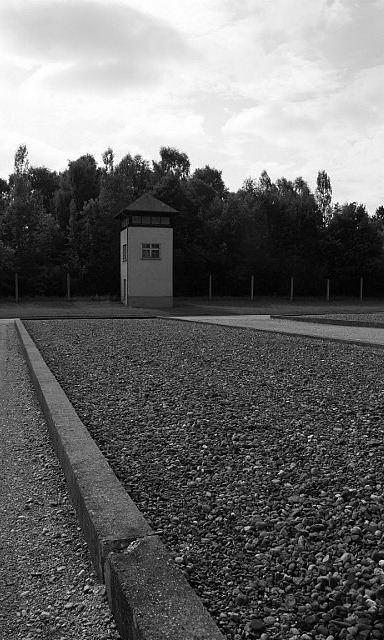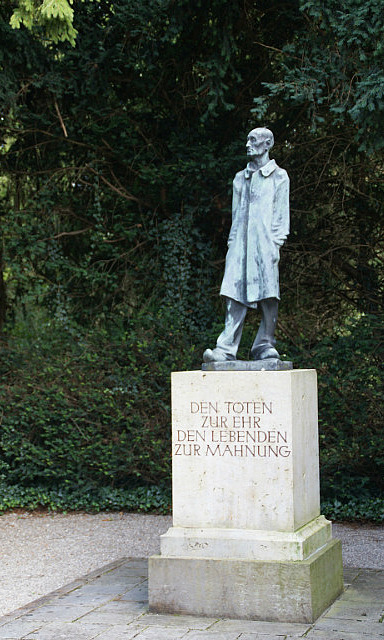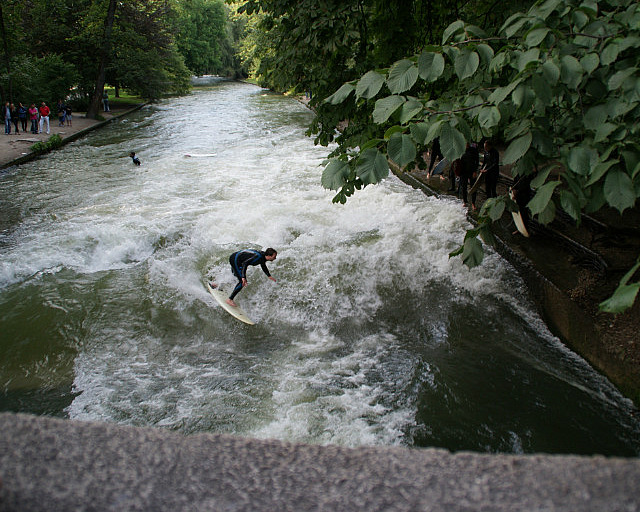From one beer capitol to another: After a successful beer challenge in the place where they brew the best lager, we boarded the train to where they brew the most lager: München, capitol of Bayern and host of the 1972 summer olympics. As we arrived in the afternoon, we decided to saunter around town, sampling the local cuisine* and the local beverages**. Without even having read about them, we ended up at Viktualienmarkt, a very famous biergarten, and Hofbräuhaus, the world's largest bierhalle.Biergartens have dual purposes: Firstly, they serve as big outdoors meeting points where people gather to meet and drink. Secondly, the trees planted therein provide a much needed shade for the underground beer storages, which otherwise would get too warm during summer.Bierhalles have dual purposes: Firstly, they serve as big indoors meeting points where people gather to meet and drink. Secondly, they host bands playing umpa-bumpa music.The beers served in München comes in four varieties: hell (lager), dunkel (dark lager), weissbier (wheat beer) and weissbier dunkel (dark wheat beer) and are all from the six big breweries, known as the Beer Mafia: Löwenbräu, Spaten, Hofbräu, Hacker-Schporr, Augustiner and Paulaner. Try and get a Guinness, a Heineken or a Glenn #5 here, and you'll be sadly disappointed. They don't even have an Irish pub around the corner!What they do have in abundance is beer, which proved helpful during the 30 year war. As the much feared Swedish protestant army seized control of the city, the locals, being catholics, obviously wanted to get rid of the uppity northerners. However, the Swedes wanted a huge bribe, 300 000 worth in gold, and tried as they might, the Bavarians could only come up with some 200 000. They then added huge volumes of beer, and the Swedes, being Swedes and all, accepted and left the city.But München isn't all beers and lederhosen, umpa-bumpa music and skillful biermädchens. A darker chapter in recent history began here, one fateful night in 1923, when a certain Adolf Hitler made his first attempt to seize power.He hijacked a beer hall meeting including the prime minister, the chief of military and the chief of police and rallied the people to get control of the city. However, he was met by the police, who shot at the crowd. Hitler survived due to his bodyguards taking the bullets for him, but he was eventually arrested and charged with high treason, which at that time should mean immediate execution. Unfortunately, the judge was a nazi sympathiser, and Adolf's sentence was set to a mere five years in prison, out of which he only served 10 months.He realized he had to seize control through democratic means, at least by his standards of democracy, and so, ten years after his first attempt to take over Germany, he rounded up all the members of parliament that could possibly oppose him and sent them to his newly built concentration camp in Dachau outside München, thus earning two thirds of the votes, thus becoming de facto dictator of Germany.The Dachau concentration camp is nowadays a memorial site, and that's where we went. As the truism goes: those who don't learn from history are doomed to repeat it, and that's why it's important, nay, essential, that everyone gets to know what atrocities went on in the concentration camps all over Europe under the nazi regime. It's essential, because what happened there can never happen again. Ever.As we walked the same grounds that had been trampled by so many innocent victims, our guide told us of the pain, suffering and torture they had to endure. As we stepped into the barracks we tried, but couldn't fully comprehend the horrible living conditions they had to survive. As we reluctantly walked into what the prisoners had been told were showers we felt only despair.The post-war German government has made it one of their top priorities to teach the school children all about the country's horrible pasts, with no alterations, nothing untold and nothing edited in, and so, this generation, and the next, and the next will have learnt from history, and are therefore not doomed to repeat it. The hope is not lost.Back in München the deeply touching and pensive half day trip needed a little contemplation, but also some pick-me-ups. Visiting the English Garden, in the beatiful afternoon sun, and watching the surfers try their skills on what I believe is the world's only canal positioned, park placed, standing surfing wave.And so we leave München, the city of contrasts, of beer, of rememberance and of surfer dudes and head up north, to Berlin***.
*) Sausages, sausages, pork, sausages, saurkraut, knödel, pork sausages and sausages. Mostly.**) Beer.***) Although, I feel we first should take Manhattan....
